| | | | | | Tipping the Scale on Food Loss and Waste: Momentum for Policy Change Accelerates in the U.S. and Around the World | | 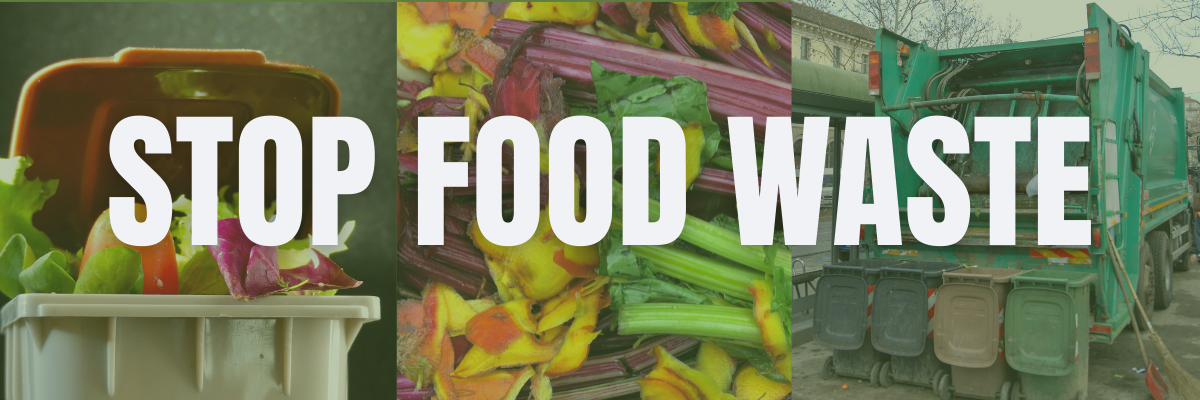 | U.S. and global stakeholders are calling for governments to step up and curb food waste. Ongoing efforts to combat food waste have seen increasing successes over the past several years, particularly at local, state, and regional levels. Yet, as one-third of the world's food is lost or wasted rather than consumed, there is a clear need for drastic policy change. Not only does this food waste contribute heavily toward climate change, but it is devastating in the face of rising rates of food insecurity amid the global pandemic. Since the Biden Administration and new Congress took office in January, food loss and waste has been high on the U.S. policy agenda. To support the growing dialogues, FLPC and our partner organizations are providing decisionmakers with the tools they need to stop food waste along the food chain. Our recommendations span from high-level, impactful food waste policy solutions, to targeted and specific avenues for change. FLPC has also helped map food waste solutions on the global stage. This year, we released new research under The Global Food Donation Policy Atlas on food donation laws and policies in countries across five continents. Pursuant to this project, and with the support of The Global FoodBanking Network, FLPC hosted a series of virtual dialogues with global policymakers on strategies to reduce food waste and promote greater food donation. These important conversations helped to further build momentum for critical policy change. For more information on our activities to reduce food lost and waste, explore our recent publications and resources, below. | | | | Five Solutions to Cut Food Loss and Waste by 50% by 2030 FLPC recently teamed up with ReFED, the Natural Resources Defense Council, World Wildlife Fund, and more than 50 companies, NGOs, and other stakeholders to recommend five key actions for Congress and the Biden Administration to cut U.S. food loss and waste in half by 2030, in accordance with SDG 12.3. We published our recommendations in the U.S. Food Loss & Waste Policy Action Plan for Congress & the Administration.
Congress has already taken steps to advance one of the coalition's solutions through the recent introduction of the Zero Waste Act, which would establish a program to measure, prevent, and build the infrastructure necessary to decrease food waste across America. | | | | | | Curbing Food Waste Through Child Nutrition Reauthorization In partnership with ReFED and the Natural Resources Defense Council, we published a report, Leveraging Child Nutrition Reauthorization to Reduce Food Waste, outlining 14 recommendations for Congress to reduce food waste through the upcoming Child Nutrition Reauthorization legislation. | | | | | | Global Food Donation Policy Atlas Through our online Atlas tool, you can now compare food donation laws and policies across a total of 14 countries and access comprehensive Legal Guides, Policy Recommendations, and Executive Summaries for each country. New research for the Atlas project is currently underway in eight countries across Africa, Asia, Oceania, and South America and will be added to the Atlas map in the coming years. Additionally, read about our virtual dialogue series with global policymakers on how to increase food donations during the COVID-19 pandemic, by extending liability protections for donors, and by clarifying food date labels. | | | | | | | | | | Other Recent Publications | | 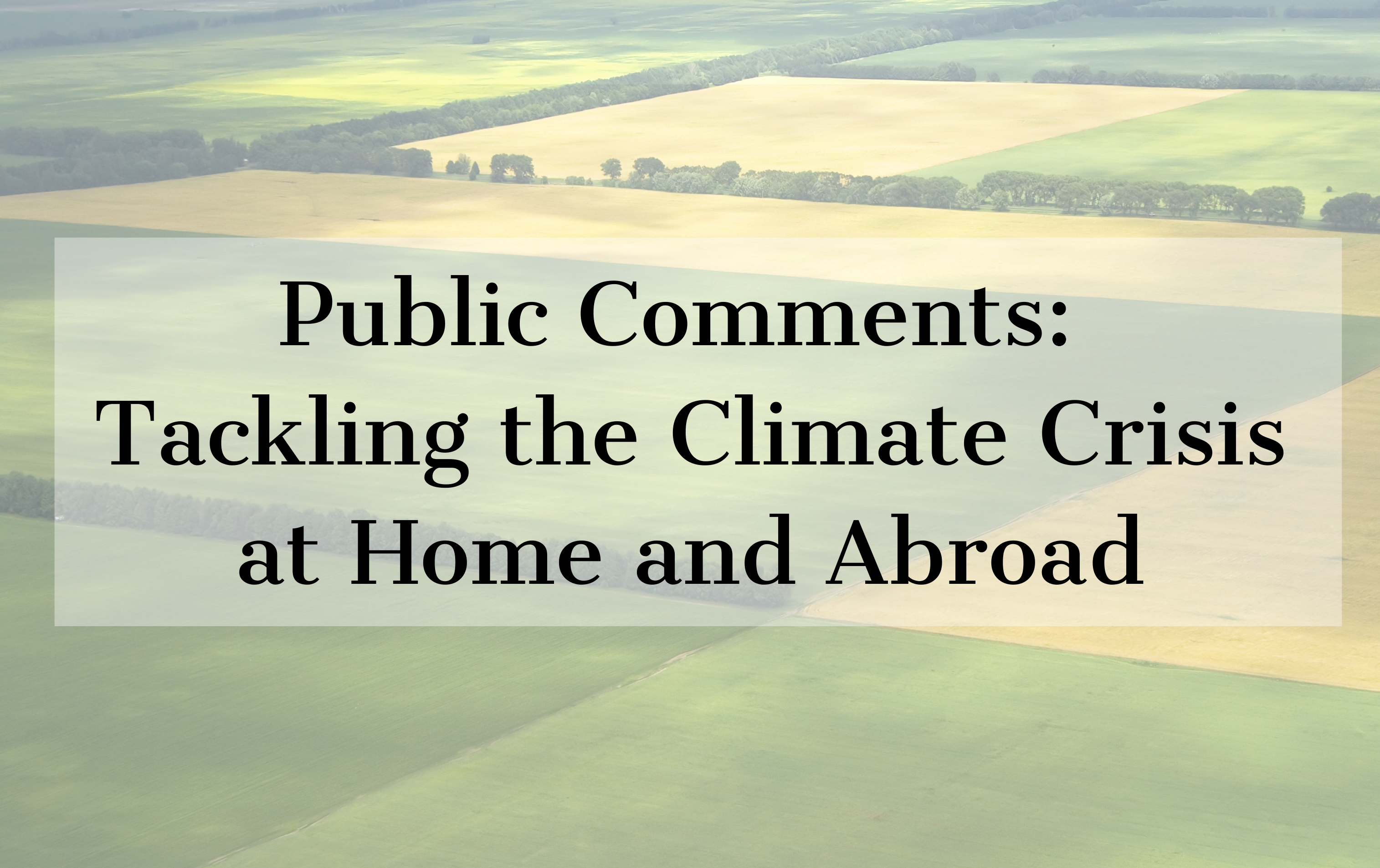 | Public Comments on Tackling the Climate Crisis In May, FLPC submitted two public comments responding to the U.S. Department of Agriculture notice of request for public comment on climate-smart agriculture and forestry practice systems, one submitted with the Partnership for a Perennial Agriculture and one submitted as part of the Farm Bill Law Enterprise. | | 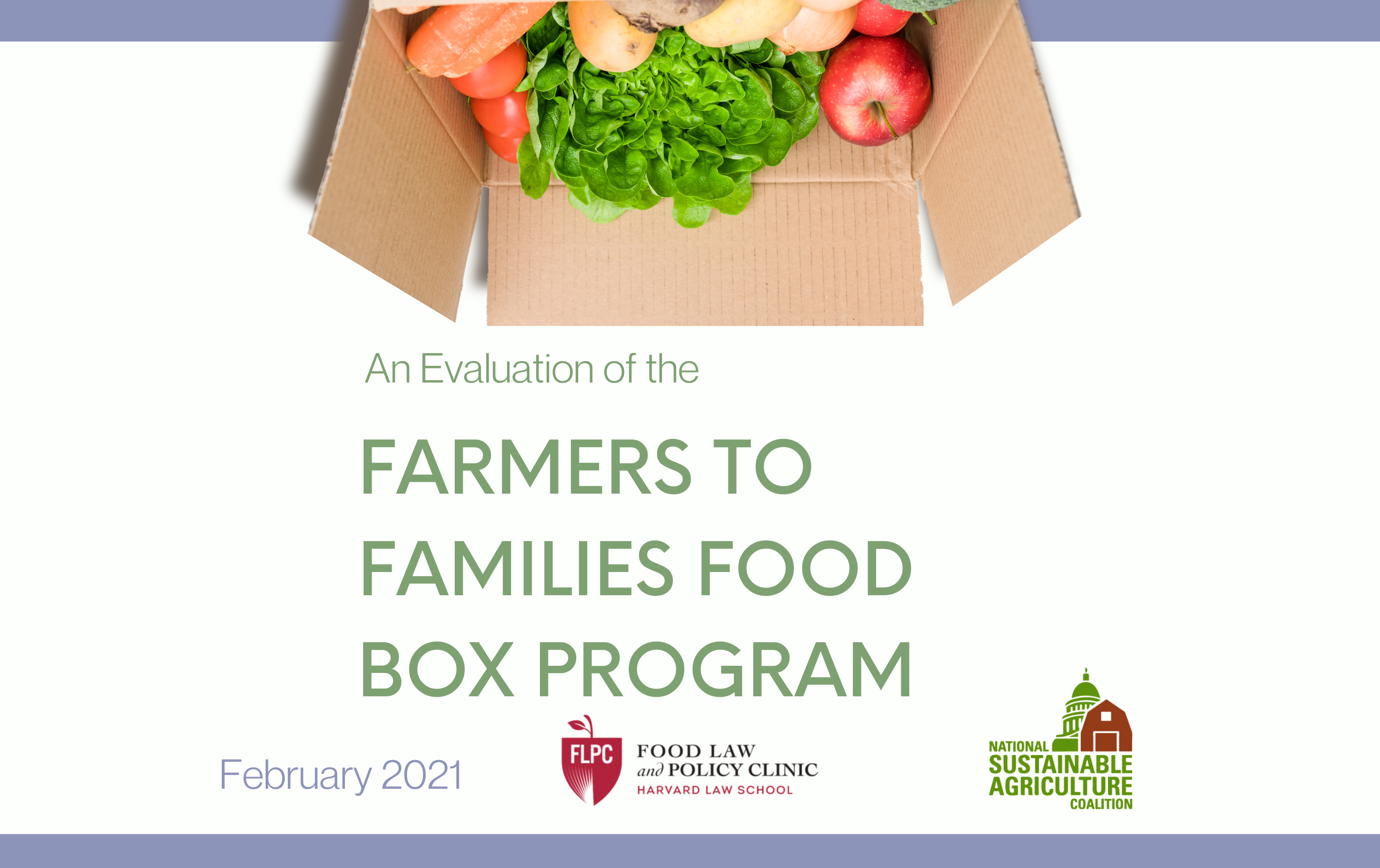 | An Evaluation of the Farmers to Families Food Box Program In February, FLPC and the National Sustainable Agriculture Coalition published an analysis of and recommendations to improve USDA's Farmers to Families Food Box Program, launched in spring 2020 to address farmer viability and alleviate hunger amid COVID-19. | | 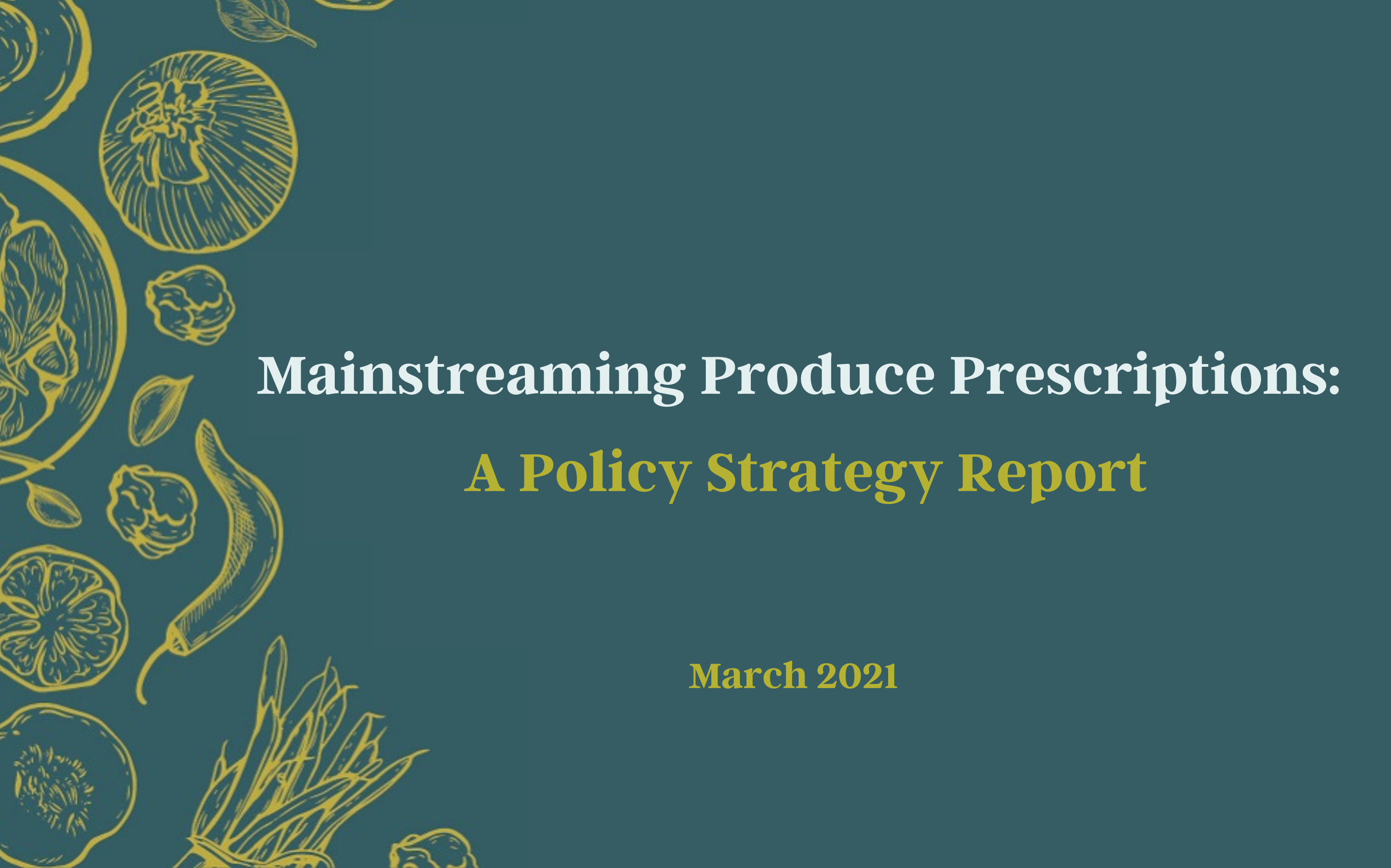 | | | | 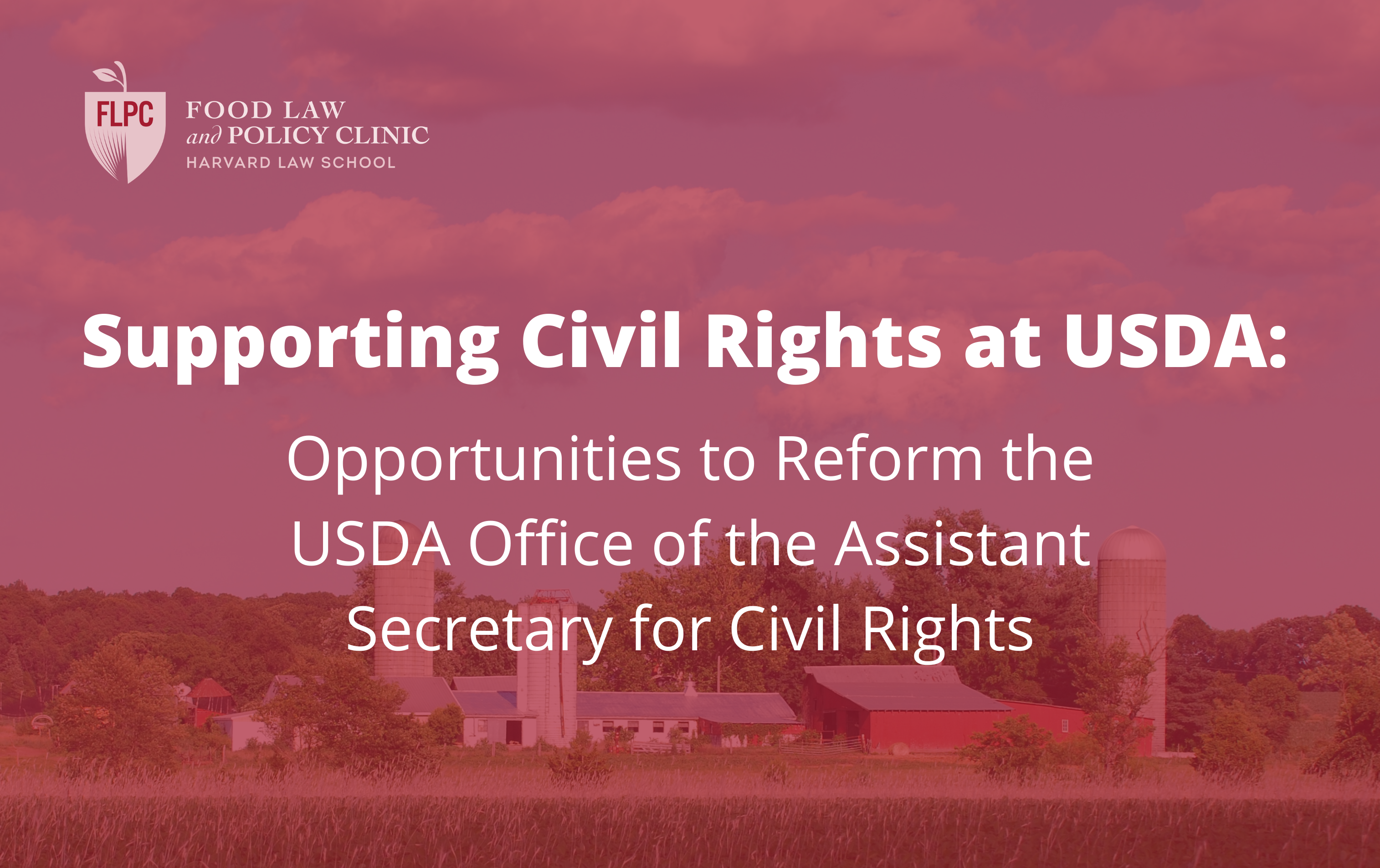 | Supporting Civil Rights at USDA In April, FLPC published an issue brief documenting the agency’s past struggles with establishing an effective civil rights accountability system and offering specific recommendations on ways OASCR–the office responsible for leading and overseeing USDA’s civil rights programs–could manage the complaint process moving forward. | | | | 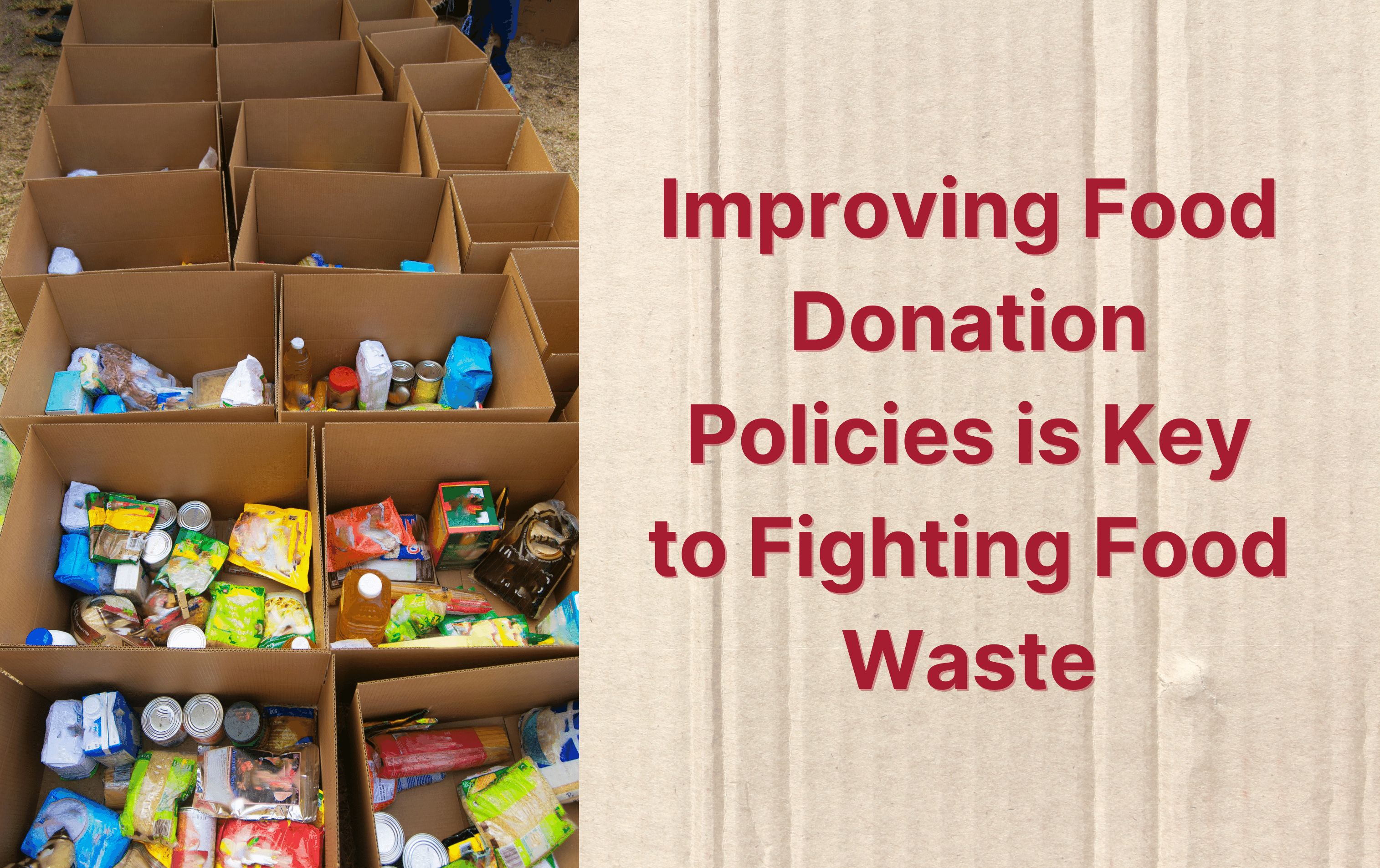 | Improving Food Donation Policies is Key to Fighting Food Waste The International Food Policy Research Institute recently published a blog post co-authored by FLPC and The Global FoodBanking Network. The blog post spotlights policies that increase food donation and food access while decreasing food waste, citing findings from The Global Food Donation Policy Atlas. | | 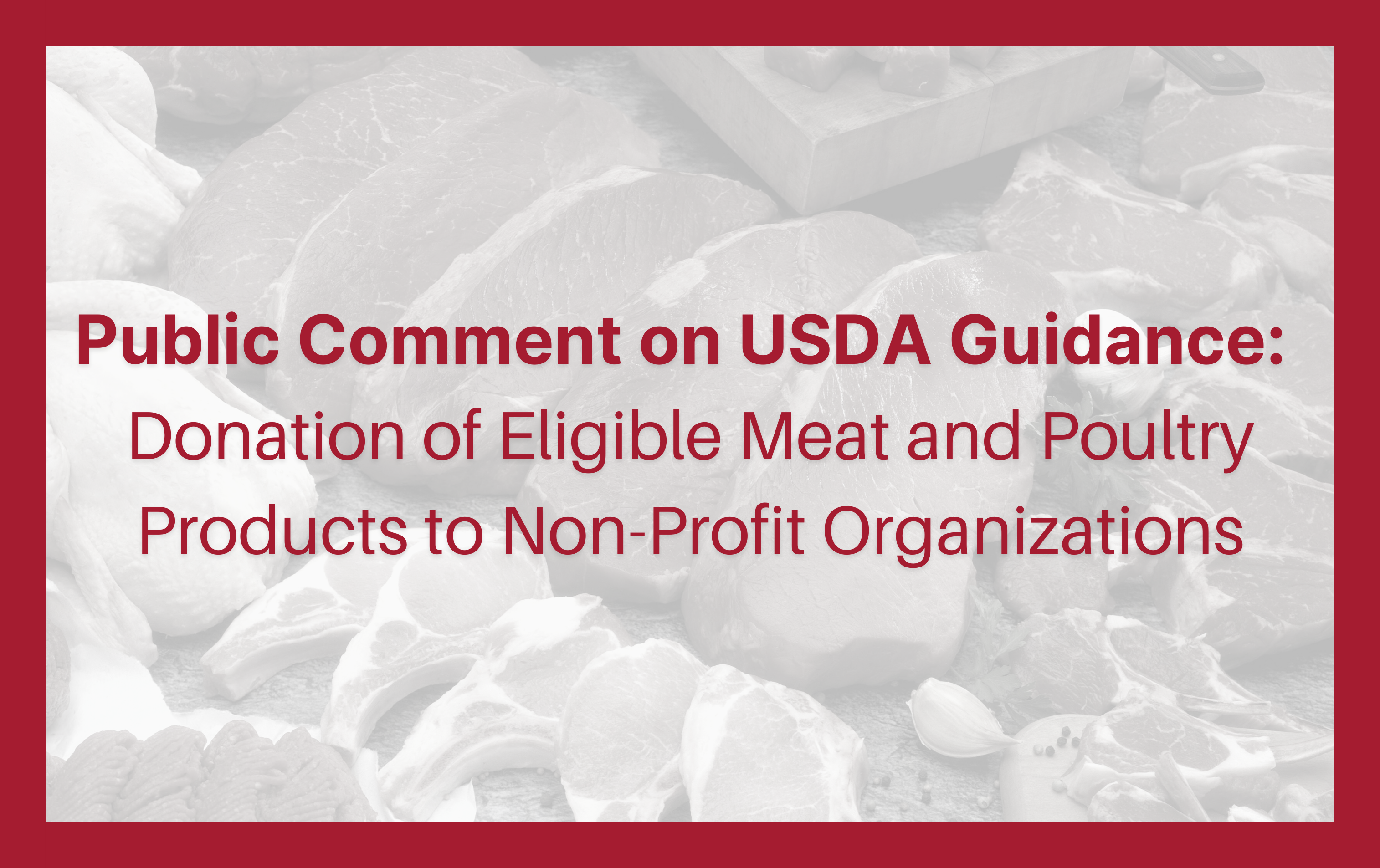 | Public Comment on USDA's New Guideline for Donating Meat and Poultry In February, FLPC submitted comments commending USDA's Food Safety Inspection Service (FSIS) for publishing a draft Guideline encouraging the donation of meat and poultry products to non-profit organizations. In addition to highlighting the Guideline's strengths, FLPC shared several specific suggestions for FSIS to improve elements of the Guideline. | | | | | | | | | | | | Strengthening the Public Health Impacts of SNAP
The USDA Supplemental Nutrition Assistance Program (SNAP) helps tens of millions of Americans afford food each month, and participation has grown during the COVID-19 pandemic. A new report co-authored by FLPC's Emily Broad Leib and published with support by Healthy Eating Research identifies evidence-based policy changes that have the greatest potential to improve SNAP participants’ nutrition and overall health. | | | | | | | | | | Congratulations Harvard Law School Class of 2021 From the FLPC staff and faculty, we appreciated having you in our clinic and seminar over the last few years and wish you all the best of luck on your next adventures. Congratulations, graduates! | | | | | | Welcome, Regan Plekenpol FLPC is pleased to welcome Regan Plekenpol as a Program Coordinator after her long-term work with the team as a graduate student research assistant. Her portfolio currently focuses on international and domestic food waste mitigation and food donation policy. She is passionate about the intersection of food systems and the environment, with a keen interest in improving access to nutritious and sustainable food sources. Welcome, Regan! | | | | Welcome, Summer Interns Welcome, and thank you to our 2021 Summer Interns for their incredible work to advance our food law and policy initiatives this summer: - Jennifer Glazier, University of Virginia
- Nadia Haile, Case Western Reserve University
- Jasmine Nguyen, University of Mississippi
- Gray Norton, University of Arkansas
- Holly Russo, University of Alabama
| | | | We Are Hiring FLPC is seeking qualified and passionate candidates for a Clinical Instructor position. The Clinical Instructor will join a dynamic public interest and clinical teaching food law and policy program that includes both independent and collaborative team work in growing areas of local, national, and global importance. Read the full job description here. | | | | | | | | | | | | | | | | | | The Harvard Law School Food Law and Policy Clinic (FLPC) serves partner organizations and communities by providing guidance on cutting-edge food system issues, while engaging law students in the practice of food law and policy. FLPC’s work focuses on increasing access to healthy foods, supporting sustainable production and regional food systems, promoting community-led food system change, and reducing waste of healthy, wholesome food. FLPC is committed to advancing a cross-sector, multi-disciplinary and inclusive approach to its work, building partnerships with academic institutions, government agencies, private sector actors, and civil society with expertise in public health, the environment, and the economy. Learn more about FLPC. | | | | | | | | | | | |